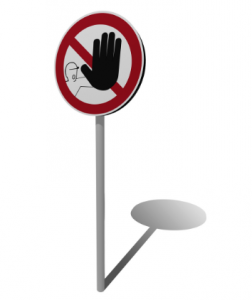
Health Insurance Denials
Updated: February 15, 2023
It can be discouraging to get a letter informing you that your medical service or treatment will not be covered. This is especially true when it was something specifically recommended by your healthcare provider. It can seem like the insurance company is rationing your healthcare.
 These denials can be for a service or treatment you are requesting (pre-service) or you’ve already received (post-service).
These denials can be for a service or treatment you are requesting (pre-service) or you’ve already received (post-service).
- Pre-service denial happens when you are requesting services or treatments that require prior approval or any that are not covered by your policy and you are seeking approval to get them. A denial in this case prevents you from seeking that service or treatment without having to pay the full cost.
- A post-service denial comes after you have a medical service, you’ve paid your copay/coinsurance, and the remainder of the cost is submitted to the insurance company by you or your healthcare provider’s office filing a claim. A denial in this case is a refusal to pay for the service.
Once your insurer denies your claim, they must explain why and notify you in writing within:
- 15 days if requesting prior authorization for a treatment;
- 30 days for medical services already received; or
- 72 hours for urgent care cases.
There are many reasons for denials or rejections of your claim but the most common ones involve human error, the terms of your policy, and the nature of your medical care. You may be more likely to expect a denial when you change healthcare insurance policies and their formulary or network does not include your medication or specialist, your treatment was experimental, cosmetic, or investigational, or you and/or your healthcare provider attempt to get an exemption such as for a non-formulary medication, unapproved treatments, or out-of-network provider. In these cases, you may be able to prevent the denial by submitting documentation of medical necessity with the claim.
Common Reasons for Rejection (Pre-service Denial)
Typos, incorrect codes/dates, incomplete or missing information, mistaken identity, and other errors that can occur when a claim form is filed or submitting the form after the due date for the filing is often a reason for a rejection.
Rejections do not usually need to be appealed. A phone call to the insurer or submitting a corrected form will often be all that is necessary for simple errors, oversights, like incomplete or missing information, on the claims form, and coding error.
Common Reasons for Post-service Denial
 You didn’t follow the rules, such as failure to get a referral, prior authorization, meet deadlines, or other violations of the terms of your policy, you changed healthcare insurance policies and some of your medications and/or consultants are not allowed by your new policy, or you have not met your deductible.
You didn’t follow the rules, such as failure to get a referral, prior authorization, meet deadlines, or other violations of the terms of your policy, you changed healthcare insurance policies and some of your medications and/or consultants are not allowed by your new policy, or you have not met your deductible.
There are equivalent alternatives in the network or formulary you must try first or your care was deemed not medically necessary.
Medical denials happen when the insurance reviewer does not agree with your healthcare provider because your service, test, procedure, or treatment:
- Is specifically excluded from your policy’s coverage;
- Isn’t the standard test or treatment for that condition;
- Is out-of-network or is not in your policy’s formulary;
- Exceeded the coverage limits in your plan for that service;
- Is too expensive and you have to try a less expensive option first;
- Is not mentioned in your policy’s coverage;
- Was incorrectly classified as inpatient vs observation;
- Did not need to occur in an emergency room or other inappropriate setting;
- Is considered experimental or investigational;
- Is deemed not medically necessary because it was cosmetic or the insurance company has not been convinced you need it; and/or
- Is medical cannabis.
Your medical bill was submitted incorrectly. If the rejection was due to an incorrect medical bill, you will be responsible for gathering the information to correct this before re-submitting the claim.
- Contact your provider’s office and/or the inpatient facility to get a copy of all the services that were billed for to compare if they were different from the services you actually received.
- Have your healthcare providers make a list of all the services they provided and confirm that it is accurate.
- Complete the claim form and include this documentation.
- Include the names and titles of anyone you are in contact with and detailed notes of each encounter including the day and time.
You may have maxed out the coverage limits in your health plan.
When you get a denial, talk to your healthcare provider; there may be medical consequences of having your claim denied.
Reasons to Avoid Denials
 It can be very expensive when you have to pay the full cost of a denied service.
It can be very expensive when you have to pay the full cost of a denied service.
- This is especially frustrating when there is no alternative and you have to pay out-of-pocket if you can’t wait for the appeal process to get the test or start treatment.
- In situations where you know you will eventually pay out-of-pocket, you may be able to negotiate for a lower price. Many providers will do this as it saves them money to not have to deal with an insurance company.
- You may look for sources of funding such as disease-specific foundations, patient assistance programs, or crowdfunding sites such as GoFundMe.
Having to try alternate treatments or see a different provider can be annoying, but it could compromise your health if they aren’t successful and/or delay effective treatment.
If there are no alternatives, your care will likely be delayed. This could be life-threatening if your condition is serious enough. Examples in which there may be no alternative include:
- A rare disease that requires an expensive drug;
- When the accepted surgery or another form of treatment would not be effective;
- A new form of healthcare technology is the best option;
- Off-label use of drugs (drugs prescribed for a treatment other than that for which they are approved) when there are no effective treatments;
- Compassionate drug use, such as investigational drugs not yet approved but may be the best or only option; and/or
- Herbal and/or nutritional supplements if they have been shown to be effective.
Preventing Denials
While it is possible to successfully overturn a denial, it is better to do all you can to avoid one. Like any contract, a health insurance policy is complicated and you may need help interpreting all the details.
The most effective way to prevent denials is to choose an insurance policy that meets your unique situation. You may be able to get a policy that already covers your medications, testing options, and specialists or get one that allows a wider range of medications and referrals, although they are more expensive. You will also need to talk to your healthcare provider before you get or replace a healthcare insurance policy to see how much flexibility your medical care has to use equivalent medications on their formulary and facilities and specialists in their network.
Denials that are based on missed deadlines and violations of the terms of your policy that you don’t know about will usually be unexpected and can be difficult to prevent. While human error is difficult to prevent, knowing about and sticking to the terms of your policy is the best way to prevent unexpected denials. This means:
- Making sure you are aware of deadlines;
- Knowing the yearly limits of certain types of care, such as physical therapy visits or inpatient days;
- Knowing and sticking to your network and formulary; and/or
- Being sure to get referrals or prior-authorizations for any service identified as needing one.
You should learn the appropriate way to file a medical claims form since it will be you who usually file them when you see an out-of-network provider or have an indemnity plan.
- Each company will have its own method you will need to adhere to. You usually have to submit your claim within a specified time frame (a year or two is common). It is best to call your insurer and ask for help if you are at all uncertain about how to do this.
- Contact your insurance company to obtain a health insurance claim form; you may request one through the mail, download a copy from their website, or fill one out online.
- To file online you will first have to create a password protected account. Online filing may have a few advantages such as being quicker than the postal service, a function that does not let you proceed if you leave spaces blank, or the ability to see financial information such as the amount left in your deductible or coinsurance for a type of visit.
 There is information you need before you submit a claim, some of which is specific to each visit. Make sure to provide any additional information from your doctor or healthcare facility that is requested.
There is information you need before you submit a claim, some of which is specific to each visit. Make sure to provide any additional information from your doctor or healthcare facility that is requested.
- You will need an itemized bill from your healthcare provider that lists the type and cost of each service that was provided.
- Make sure any medications or drugs given during any treatment are listed individually with itemized costs.
- A copy of the original itemized bills must be attached to the claim form or otherwise sent to the insurance company.
- When you are requesting a non-formulary medication, unapproved treatment, or out-of-network provider, make sure the request includes all of the information you think is necessary to convince the insurance of your need. This will include a statement of medical need from healthcare providers, which should include:
- The healthcare provider’s reasoning about why this particular service or treatment is necessary;
- Documentation of any attempts to treat you using approved methods; and
- Any other evidence that may help reinforce your claim.
- It is best to check the billing codes for medical errors before you send in the claim rather than after the claim has been rejected. Contact your healthcare provider if you need clarification or have questions about a service or code.
When you have the forms and necessary information, fill in every space with required information — even if you are not reminded to. Required information is usually marked with an asterisk (*). Fill in any other information that you think will need to be included to make sure your claim is paid.
Protect yourself by making copies of all forms and additional documents or storing them as files on your computer. This will make it easier to recognize and correct any errors in the claim process. It’s important if you have to re-file your health insurance claim for any reason.
Review your claim to make sure everything is completely accurate and avoid having your health insurance denied for incorrect information. You may want to check with your health insurance company to tell them you are about to send in your health insurance claim form and review the paperwork to make sure there is nothing else you need.
Once you have everything in order, submit the claim form to your insurance company. If you did not file online, the address to send the claim form should be on the claim form itself.
When to Appeal
 Any time your insurance plan won’t provide or pay for health care services you and your healthcare provider think should be covered you have the right to appeal to your insurance provider and/or an outside agency. This is guaranteed by the Affordable Care Act (ACA). The ACA also mandated a minimal standard that both the internal appeal and the external review processes have to meet. Some states set their own standards that exceed the federal minimal standards.
Any time your insurance plan won’t provide or pay for health care services you and your healthcare provider think should be covered you have the right to appeal to your insurance provider and/or an outside agency. This is guaranteed by the Affordable Care Act (ACA). The ACA also mandated a minimal standard that both the internal appeal and the external review processes have to meet. Some states set their own standards that exceed the federal minimal standards.
You could consider appealing if the denial was based on any of these reasons.
- The insurance company made a mistake regarding benefits offered under your health plan.
- The insurance company was not aware of an emergency situation.
- There was an incorrect classification or disagreement about whether your hospital stay was inpatient or observation. This most commonly occurs when your healthcare provider admits you as an inpatient, but the insurance company ruled that you should have been admitted for observation.
- The benefit isn’t offered or excluded under your health plan but is the best care for you.
- You are being denied because your medical problem began before you joined the plan. While the Affordable Care Act prevents insurance companies from denying you health insurance based on pre-existing conditions, it does not prevent them from limiting the amount of care you can receive for that condition.
- You received health services from a healthcare provider or facility that isn’t in your plan’s approved network but was the best care for you.
- Your medication was denied because it was non-formulary or too expensive and nothing else is comparable.
- The requested service or treatment was deemed “not medically necessary,” but you can provide evidence that it is.
- The requested service or treatment is an “experimental” or “investigative” treatment.
- The insurance company determines you’re no longer enrolled or eligible to be enrolled in the health plan.
- The insurance company is revoking or canceling your coverage going back to the date you enrolled because they claim that you gave false or incomplete information when you applied for coverage.
How to Appeal
- You may need to try the treatment, test, or provider authorized by your insurance before re-submitting your request.
- If your healthcare provider thinks this will be harmful, begin the process right away.
- How difficult this is will depend on the cause of the denial, your preparation, and how well you make your case.
- Look for information that may help you refute those reasons and research details of your condition. Consider researching the scientific evidence online using sites like pubmed.gov to get additional information that may help your case.
- Once you are ready, start the appeal process with your insurance company.
- There are three ways to contest the denial.
- Start with a letter of appeal with information from you and your healthcare provider making your case. Most denials are resolved at this level.
- If not approved, move on to a formal Level 1 appeal where reviewers not involved in the initial decision will look at all the information.
- Finally, there is a formal Level 2 process that involves external reviewers.
Letter of Appeal
The most common way to reverse a denial is to write a letter to the insurance company asking them to reconsider. The letter must be respectful, non-accusatory, and contain enough details to convince the reviewer that they should approve the requested medication and/or service. These details include:
- Your demographic information — Name, address, contact information (phone numbers and email address), member ID number, type of policy, and any person representing you.
- Relevant medical history — All diagnoses, duration of illness, current and past treatments (both those that have or have not worked), the impact of your illness on your lifestyle and how the denial will make it worse.
- A statement of medical need from your healthcare providers.
- Any relevant information from the terms of your policy, sometimes called the “Evidence of Coverage,” that support your appeal.
- Any information that you have obtained from personal or healthcare provider research about your illness and treatment, including current guidelines for diagnosis and treatment.
Send copies of the letter to all of the providers involved in your care.
Before you proceed to the next steps you may try speaking to the reviewer’s supervisor or other higher up in the company.
Your care will be covered if the insurance company changes their initial decision. If not, you can move on to a formal appeal.
Level 1 - Internal Appeal
 Each insurance company may have its own process, so you will need to consult your policy or the denial letter for details.
Each insurance company may have its own process, so you will need to consult your policy or the denial letter for details.
Make note of any deadlines for filing your appeal. You will usually have 30 days to complete your internal appeal if it is for a service you have requested but not yet received and 60 days if your appeal is for a service you’ve already received, but deadlines may differ.
When the appeal involves medical review, it becomes complicated and time-consuming. Examples of situations where medical decisions are made include when a recommended treatment you already had but did not get approved is important enough to be paid for, the treatment that was deemed medically unnecessary after the fact was actually necessary, and/or the denied treatment you are requesting — whether once, multiple times, or chronically — is better for you than the standard treatment.
In preparation for a medical appeal it is important to collect all the necessary information and documentation before you start. This will include:
- The notice of denial letter, which should have a detailed explanation of the reason for denial, including supporting medical evidence if included;
- A copy of your plan’s full benefits, sometimes called the “Evidence of Coverage,” along with a detailed explanation of what the company considers medically necessary and any limitations or exclusions;
- The names and titles of anyone you are in contact with and detailed notes of each encounter including the day and time;
- Asking for a statement of medical need from your healthcare providers; and/or
- Researching the scientific evidence online on sites like pubmed.gov.
Filing a formal appeal includes:
- A copy of the notice of denial letter;
- Completing all forms required by your health insurer, making sure you include any necessary information;
- Your name, phone number, claim number, health insurance ID number, and the name of your representative, if you’ve appointed one;
- A list of the specific items and/or services for which you’re requesting a redetermination and dates of service;
- Copies of any relevant or confirmatory parts of your Explanation of Benefits/Evidence of Coverage;
- A written explanation of why you think the items and/or services should be covered, including details about your condition and how it is managed;
- A statement of medical need from your healthcare providers, including documentation of any attempts to treat you using approved methods;
- Any evidence from you or your healthcare that may help backup your claim;
- Any other information that may support your case; and
- Your signature and the signature of your representative (if you appointed one).
- A copy of any letter or form you’re required to sign. If you want to have your healthcare provider or anyone else file your appeal for you; and
- Notes and dates from any phone conversations you had with your insurance company or your doctor relating to your appeal.
 Keep a copy of all submissions for your own records.
Keep a copy of all submissions for your own records.
Ask for assistance from your healthcare provider’s office, insurance representative, human resources department where you work, or outside organizations such as HealthCare.gov, the Patient Advocate Foundation or The Alliance of Claims Assistance Professionals if necessary.
The Level 1 review must be done by reviewers not involved in the initial decision. They will look at all the information, including any additional information provided by you and/or your primary healthcare provider.
The time taken to make the decision may depend on the nature of your medical condition. If your medical situation is urgent, you can request an expedited appeal which requires the insurance company to make a decision within 72 hours. If there is not an urgent need, decisions should be made within four business days.
If the appeal is for treatment you already had, request that your provider not bill you until the issue is resolved. If it is for unapproved treatment you are requesting, make sure you file your appeal soon enough to avoid any complications that may delay treatment further.
Your insurance company can notify you by phone, but must always send you a letter within 48 hours of the decision.
Level 2 - External Review
 If you and/or your healthcare provider still disagree with a decision or are concerned the internal review was not done in good faith, you have the right to make an appeal through an independent external reviewer. Evidence that the insurance company is trying to deceive you may include:
If you and/or your healthcare provider still disagree with a decision or are concerned the internal review was not done in good faith, you have the right to make an appeal through an independent external reviewer. Evidence that the insurance company is trying to deceive you may include:
- Fabricated or misleading evidence;
- Refusal to accept evidence from reputable sources;
- Refusing to conduct an investigation or unreasonably delaying the investigation;
- Unreasonable insistence on minor procedural or bureaucratic requirements that hinder resolution of the appeal; and/or
- Other grounds that show that an insurer has acted unfairly.
Once you determine the decision is appropriate for external review (i.e. involves a medical decision), you can start the process. You may ask for help from your insurance company or visit externalappeal.cms.gov.
- You’ll be able to file a request using a secure website. For claimants who are able to do so, the portal ferp@maximus.com is the preferred method of submission for review requests.
- You can also call toll free at 1-888-866-6205 to request an external review request form or fax the request to 1-888-866-6190. Once completed mail the form to:
MAXIMUS Federal Services
3750 Monroe Avenue, Suite 705
Pittsford, NY 14534
- Generally, this needs to be completed within four months of the denial by internal review.
- You will include all the information you submitted with the internal review, as well as any new evidence or information that has developed since filing the internal review.
- If this is an urgent situation, you may file for the external review before the internal review is completed.
- You may request an expedited review which must be decided on within 72 hours of your appeal.
- Standard external reviews are completed as soon as possible, but no later than 45 days after the request was received.
External reviewers will usually only review denials that are based on medical considerations; they are not likely to review a denial based on lacking a referral or pre-authorization. An external reviewer may review and make determinations whether or not:
- A treatment that is non-formulary, out-of-network, or not allowed is best for you and should be covered;
- A treatment is medically necessary, experimental, or investigational (not if it will be covered);
- To overrule any other denial involving medical judgment where you or your provider disagree with the health insurance company;
- Your insurer’s claim that you gave false or incomplete information when you applied for coverage is valid and warrants cancellation of coverage; and/or
- Your insurance company was acting in good faith when they did their review.
The health insurance company is legally required to accept the external decision if they overturn the internal appeal.
Health insurance is a legal contract and if broken can result in a lawsuit. If the insurance reviewers do not appropriately review your appeal, it is a breach of contract and they should be considered to be acting in bad faith.
In some areas bad faith health insurance claim denials may permit you to make tort claims. Torts, unlike contracts, could result in the award of punitive damages which often exceed the amount of the claim itself.
Resources
- Appealing insurance denials – A Step-by-step Guide. Consumer Financial Resources
- Consumer Assistance Programs. U.S. Centers for Medicare & Medicaid Services.
- Contact information. National Association of Insurance Commissioners – answers to questions about internal appeals and external reviews by state.
- HHS-Administered Federal External Review Process website.
- Patient Advocate Foundation – Will handle your health-insurance appeals free of charge.
- The Alliance of Claims Assistance Professionals.
- Evidence that the insurance company is trying to deceive you may include:
- Fabricated or misleading evidence;
- Refusal to accept evidence from reputable sources;
- Refusing to conduct an investigation or unreasonably delaying the investigation;
- Unreasonable insistence on minor procedural or bureaucratic requirements that hinder resolution of the appeal; and/or
- Other grounds that show that an insurer has acted unfairly.
- Appealing Health Plan Decisions. U.S. Department of Health & Human Services website. Accessed: May 20, 2022.
- Appealing a health plan decision: External appeals. Healthcare.gov. Accessed: May 20, 2022.
- Appealing a health plan decision: Internal appeals. Healthcare.gov. Accessed: May 20, 2022.
- Araujo M. How to Appeal Health Insurance Claim Denials. the balance website. Updated: January 12, 2022. Accessed: Accessed: May 20, 2022.
- Araujo M. How to File a Health Insurance Claim Form. the balance website. Updated: March 12, 2022. Accessed: May 20, 2022.
- Caldwell M. Dispute Incorrect Medical Bills or Denied Insurance. the balance website. Updated: December 3, 2021. Accessed: May 20, 2022.
- Davis E. Reasons for Health Insurance Claim Denials and What You Should Do. verywell health website. Updated: January 18, 2022. Accessed: Accessed: May 20, 2022.
- Davis E. Why Your Health Insurance Won’t Pay for Your Health Care. verywell health website. Reviewed: Updated: April 20, 2021. Accessed: May 20, 2022.
- External Appeals. The Center for Consumer Information & Insurance Oversight website. Accessed: May 20, 2022.
- Health Insurance Claim Denied? How to Appeal the Denial. National Association of Insurance Commissioners website. Updated: August 17, 2020. Accessed: May 20, 2022.
- How to Appeal a Rejected Claim. WebMD website. Reviewed: July 21, 2020. Accessed: May 20, 2022.
- How to appeal an insurance company decision. Healthcare.gov. Accessed: May 20, 2022..
- If Your Health Insurance Claim Is Denied. American Cancer Society website. Updated: November 17, 2020. Accessed: May 20, 2022.
- Kissell. Guide to handling health insurance claim denials. Insure.com. Updated: September 13, 2021. Accessed: May 20, 2022.
- Norris L. Tips for When Your Medical Insurance Company Will Not Pay. verywell health website. Updated: March 12, 2022. Accessed: May 20, 2022.
- Torrey T. Why Health Insurers Deny Coverage for Care a Doctor Recommends. verywell health website. Reviewed: February 26, 2020. Accessed: May 20, 2022.
